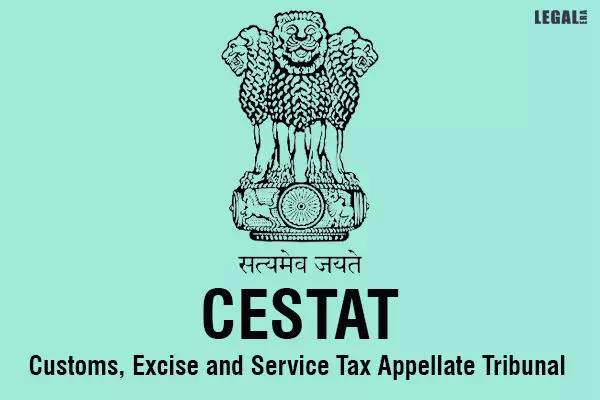- Home
- News
- Articles+
- Aerospace
- Artificial Intelligence
- Agriculture
- Alternate Dispute Resolution
- Arbitration & Mediation
- Banking and Finance
- Bankruptcy
- Book Review
- Bribery & Corruption
- Commercial Litigation
- Competition Law
- Conference Reports
- Consumer Products
- Contract
- Corporate Governance
- Corporate Law
- Covid-19
- Cryptocurrency
- Cybersecurity
- Data Protection
- Defence
- Digital Economy
- E-commerce
- Employment Law
- Energy and Natural Resources
- Entertainment and Sports Law
- Environmental Law
- Environmental, Social, and Governance
- Foreign Direct Investment
- Food and Beverage
- Gaming
- Health Care
- IBC Diaries
- In Focus
- Inclusion & Diversity
- Insurance Law
- Intellectual Property
- International Law
- IP & Tech Era
- Know the Law
- Labour Laws
- Law & Policy and Regulation
- Litigation
- Litigation Funding
- Manufacturing
- Mergers & Acquisitions
- NFTs
- Privacy
- Private Equity
- Project Finance
- Real Estate
- Risk and Compliance
- Student Corner
- Take On Board
- Tax
- Technology Media and Telecom
- Tributes
- Viewpoint
- Zoom In
- Law Firms
- In-House
- Rankings
- E-Magazine
- Legal Era TV
- Events
- Middle East
- Africa
- News
- Articles
- Aerospace
- Artificial Intelligence
- Agriculture
- Alternate Dispute Resolution
- Arbitration & Mediation
- Banking and Finance
- Bankruptcy
- Book Review
- Bribery & Corruption
- Commercial Litigation
- Competition Law
- Conference Reports
- Consumer Products
- Contract
- Corporate Governance
- Corporate Law
- Covid-19
- Cryptocurrency
- Cybersecurity
- Data Protection
- Defence
- Digital Economy
- E-commerce
- Employment Law
- Energy and Natural Resources
- Entertainment and Sports Law
- Environmental Law
- Environmental, Social, and Governance
- Foreign Direct Investment
- Food and Beverage
- Gaming
- Health Care
- IBC Diaries
- In Focus
- Inclusion & Diversity
- Insurance Law
- Intellectual Property
- International Law
- IP & Tech Era
- Know the Law
- Labour Laws
- Law & Policy and Regulation
- Litigation
- Litigation Funding
- Manufacturing
- Mergers & Acquisitions
- NFTs
- Privacy
- Private Equity
- Project Finance
- Real Estate
- Risk and Compliance
- Student Corner
- Take On Board
- Tax
- Technology Media and Telecom
- Tributes
- Viewpoint
- Zoom In
- Law Firms
- In-House
- Rankings
- E-Magazine
- Legal Era TV
- Events
- Middle East
- Africa
CESTAT rules Punjab Cricket Association not Liable to Pay Service Tax Under ‘Club Or Association Service’

CESTAT rules Punjab Cricket Association not Liable to Pay Service Tax Under ‘Club Or Association Service’
That’s because it was registered under the Societies Registration Act of 1860
The Chandigarh Bench of the Customs, Excise, and Service Tax Appellate Tribunal (CESTAT) has held that the Punjab Cricket Association (PCA) is not liable to pay service tax under the heading ‘club or association service.’
The Coram of S. S. Garg (Judicial Member) and P. Anjani Kumar (Technical Member) observed that the department did not adduce any evidence to demonstrate that the appellant collected the charges for providing any services to the members.
The appellant, PCA, is registered as a service tax assessee for providing ‘club or association services.’
During an audit, the tax department noticed that PCA was receiving payments like registration fees, entrance fees, annual subscriptions, and charges for the provision of additional facilities such as billiards, swimming pools, lawn tennis, and accommodation from its members. However, it did not discharge the applicable service tax liability.
Thus, a show-cause notice was issued to PCA. The original authority confirmed the demand for service tax along with interest while appropriating an amount paid by the appellant. The tax department imposed a penalty under Sections 76 and 78 of the Finance Act, 1994.
On PCA’s appeal, the Commissioner of Income Tax (Appeals) passed the order confirming the duty of Rs.8,09,168 along with the penalty.
The assessee contended that in association with the Board of Control for Cricket in India (BCCI), it enrolled eight categories of people as members. The broad categories were A and B. While only associate members were charged a fee for enrolling; others were not charged. Therefore, PCA was not a club or association for the purpose of Section 65(25a) of the Finance Act. Hence, not liable to service tax.
The tribunal noted that the definition of ‘club or association’ contained in Section 65(25a) made it clear that any person or body of persons providing services for a subscription or any other amount to its members would be within the tax net.
CESTAT ruled that PCA was registered under the Societies Registration Act, 1860, therefore, under the ‘club or association service’, was not liable to pay service tax.



